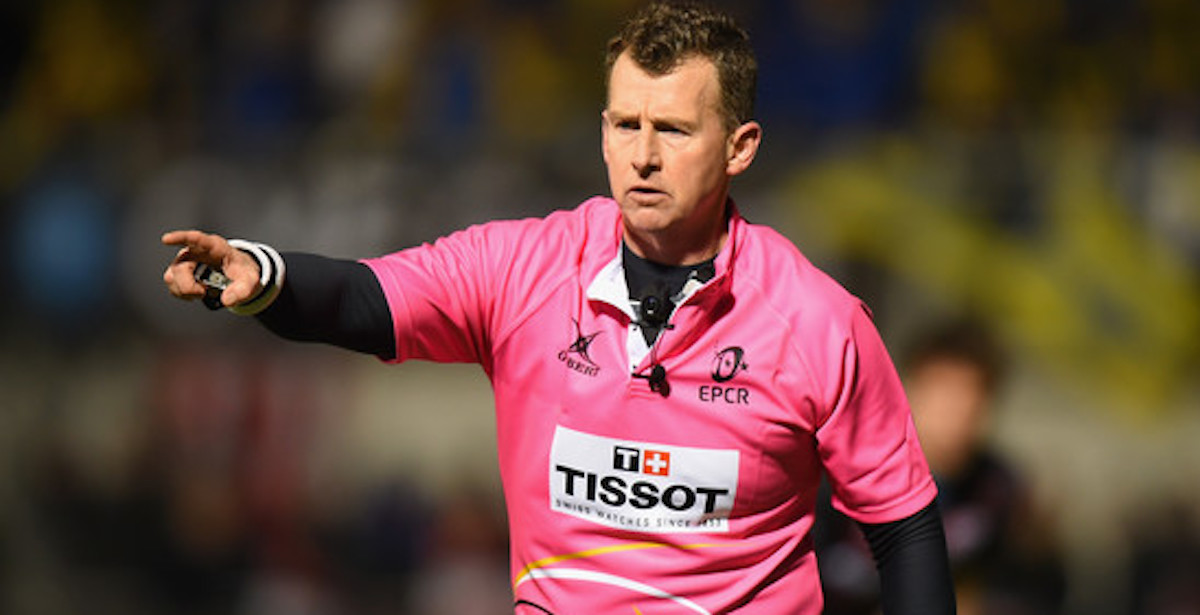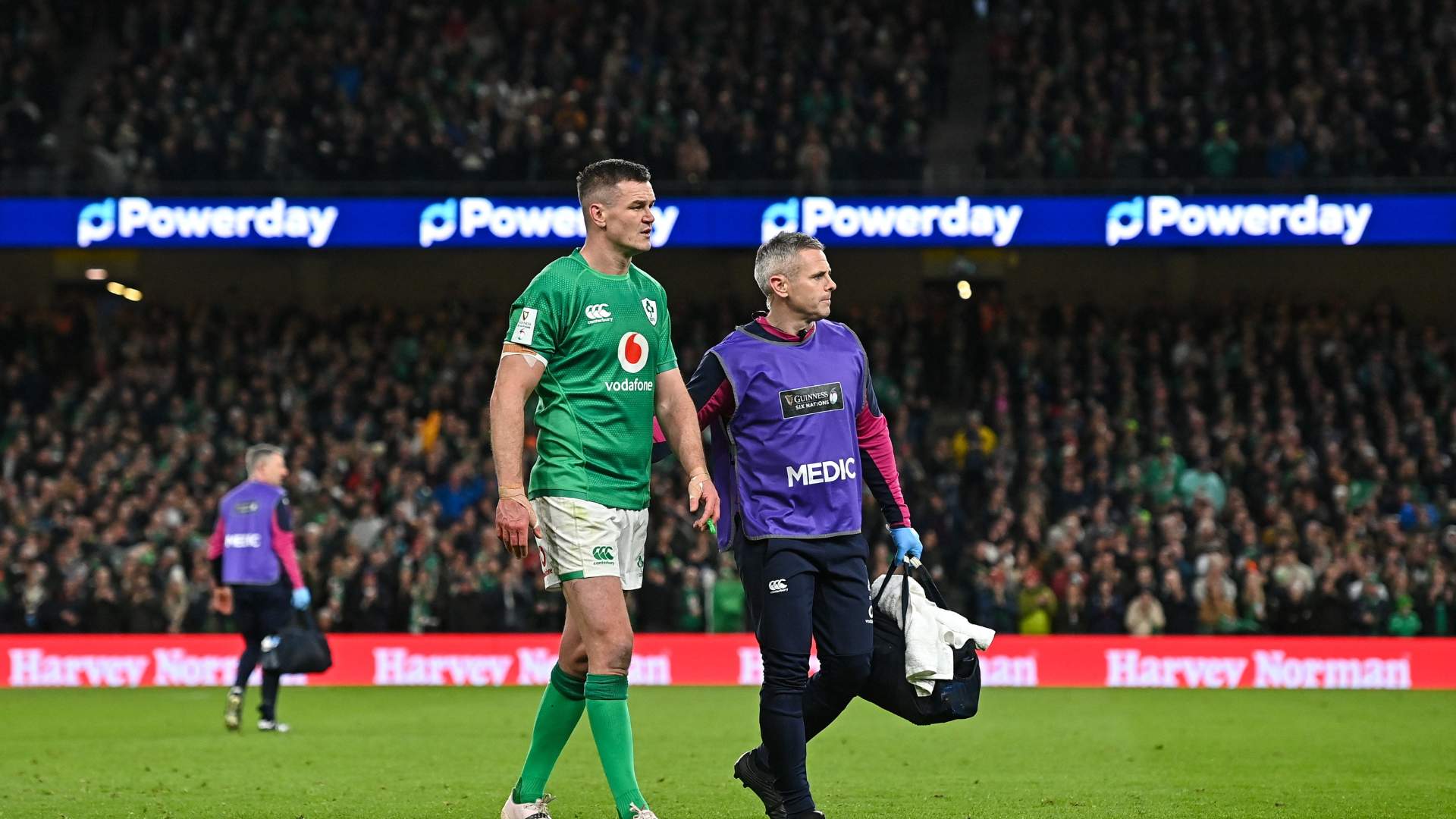Esteemed former referee Nigel Owens has called for clearer rules on the exact circumstances that can lead to a red card in the game of rugby. The former World Cup final referee made these requests in a debate surrounding the 20-minute red card that’s recently been introduced in Super Rugby.
The law variation, which allows a sent-off player to be replaced by a substitute after 20 minutes, is employed in Super Rugby, and SANZAAR wants to see it introduced worldwide.
Calling the move a “kneejerk reaction” which does not address the key issue, the 52-year-old said: “We need to sit down and really look at exactly what is a red card.
“If something is completely accidental or careless and there is no recklessness in it, it wasn’t an act of thuggery, then we need to look at why we are giving a red card for something that is unlucky.
“If you go flying into a ruck with your shoulder first, your arms behind you, straight into the head of a player – a complete act of recklessness and danger – then you should be sent off and you shouldn’t be replaced in 20 minutes.
“We are stuck between a rock and a hard place at the moment where we don’t want to spoil a game by someone being sent off unluckily and his team being down to 14 men.
“But my question is if someone is very unlucky, then why is he given a red card?
“So we need to decide what warrants a clear red card.”

Speaking during the BKT URC round table, Owens continued:
“We also have to remember player safety is hugely paramount and we have to change player behaviour and get them out of that recklessness, flying in, not caring where they are hitting people. We have to change that.
“I am a little bit worried that if teams are only going to be down to 14 men for 20 minutes, are we then taking away what we really need to be strong on and that is changing player behaviour and making the game as safe as we possibly can.
“If you look back at the tip tackle or the recklessness of taking a player out in the air, many years ago referees went really strong, players were sent off, and we very rarely see a tip tackle any more. That’s because there were bans for it and it changed player behaviour.
“But, for some reason, we are still struggling with getting the change of player behaviour when it comes to recklessness around clear outs and around head contact in getting those tackles lower.
“Some players are consciously trying to do that, others are not.
“We do not want to go down to 14 men for any period of time, so let’s make sure we get the discipline right and get these tackles lower.
“I just think the 20 minute red card is a bit of a kneejerk reaction in trying to find a balance of keeping people happy when they are saying going down to 14 men is spoiling a game, compared to a clear red which is there for a reason.
“Let’s look at the whole picture and make sure we get it right rather than just simply papering over the cracks and not seeing a change in player behaviour, particularly when it comes to head contact.”

Owens, who is part of the BKT URC referee selection panel, also feels the involvement of TMOs needs to be reduced.
“You can’t referee at the top end of the professional game these days without technology to help you make the decisions that are just humanly impossible for you to see,” he said.
“But we are talking about more controversies now with technology than we were before we had it the way it is now.
“It is beneficial for the game to get those key decisions which you just can’t see otherwise, but I do think if you use it too much then it does take away from the game.
“It also subconsciously takes away from the referee. My philosophy when I refereed was I knew I was not going to get everything on the field, but I was going to do my damned best to get everything I can.
“When there were things that were humanly impossible for me or my assistant referees to see, that’s when you want the TMO to come in and sweep up behind you. But if you go out there knowing it’s there as a back-up, that’s when you make mistakes.
“I liken it to if you put a tightrope across the two highest skyscrapers in a city. If you are going to walk across that tightrope and there is no safety net underneath, you are going to make damned sure you are totally focused and get to the other side without making a mistake and falling off.
“Put a safety net underneath and you are going to go walking across knowing it doesn’t matter if you fall. So you are not as focused as you would be, a little bit blase, and all of a sudden a mistake happens and you fall.
“That’s what I think technology has done. It is needed in the game because you want to get the big decisions right, but I do think it needs to be reduced and not used in the way it is at the moment, which is pretty much for nearly everything.”
Owens has also made a claim to reduced the number of substitutions in a game to reduce the amount of physical collisions and make it a more free flowing encounter.
Also addressing one of the newer rules, Owens has called for an end to the goal-line drop out, suggesting that it hasn’t achieved it’s purpose of reducing try line pick and go’s or attacking mauls.
Sign In